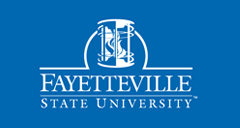Abstract
COVID-19 placed a strain on colleges that tend to rely on tuition, especially small HBCUs, which traditionally serve a high percentage of underrepresented students. Being away from campus, many stakeholders were experiencing higher levels of stress and anxiety. Social media offers an outlet for schools and stakeholders to stay connected during a crisis. Using social capital, this study examined how small HBCUs bridged social capital on Facebook during the year before and the first two years of the pandemic. A comparative analysis of Facebook posts of 30 HBCUs with a student population of under 2000 was conducted to determine post frequency, information types, and engagement in 2019, prior to the pandemic, 2020, after institutions moved online, and 2022, when they began to reopen. Saturation and information type may have been factors in post-engagement in 2020 and 2021. More post comments in 2020 indicate stakeholders may be seeking interaction with institutions.
Recommended Citation
Peters, Pamela
(2025)
"Engaging Students and Stakeholders in Times of Crisis: HBCUs Bridging Social Capital on Facebook While Navigating Physical Distancing,"
Journal of Research Initiatives: Vol. 9:
Iss.
1, Article 10.
Available at:
https://digitalcommons.uncfsu.edu/jri/vol9/iss1/10
Included in
Communication Technology and New Media Commons, Critical and Cultural Studies Commons, Higher Education Commons, Higher Education Administration Commons, Mass Communication Commons, Online and Distance Education Commons, Public Relations and Advertising Commons, Social Media Commons
